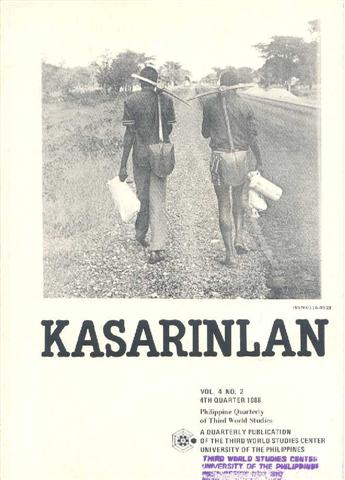Europe Looks at the Third World: The EEC-NGO Experience
Abstract
The protectionist policy of the European Economic Community (EEC) has created a negative image for the regional economic grouping in the eyes of Third World countries. For the EEC such a policy is needed to foster regional sufficiency and economic growth. Thus, there is a need to protect local markets of its member-states from the incursion of foreign products, including those from the Third World. The underdeveloped nations, on the other hand, point out the contradictions in such a policy. Not only did these European countries, several of which were their former colonial masters, transform their (Third World) economies into appendages of the international capitalist system, but foreign economic assistance to the Third World also perpetuate the dependence of their economies on the external market. This position of EEC governments, however, is being challenged by European development aid non-governmental organizations (NGOs) who believe that the imposition of protectionist policies is detrimental to the EEC. Such policies will ultimately backfire on the EEC member-states because they also limit the potential marker for European products since developing states will not earn enough to buy First World commodities. More importantly, unlike most of their governments, these NGOs believe that the goal of international economic assistance to underdeveloped states must be the establishment of self-reliant economies and not the production of commodities for the world market. Such an economic scheme, they perceive, would benefit both the First and Third Worlds.
Published
2009-07-21
How to Cite
ENCARNACION, Teresa.
Europe Looks at the Third World: The EEC-NGO Experience.
Kasarinlan: Philippine Journal of Third World Studies, [S.l.], v. 4, n. 2, july 2009.
ISSN 2012-080X.
Available at: <https://journals.upd.edu.ph/index.php/kasarinlan/article/view/1356>. Date accessed: 02 sep. 2025.
Issue
Section
Features
By submitting a manuscript, the authors agree that the exclusive rights to reproduce and distribute the article have been given to the Third World Studies Center.



